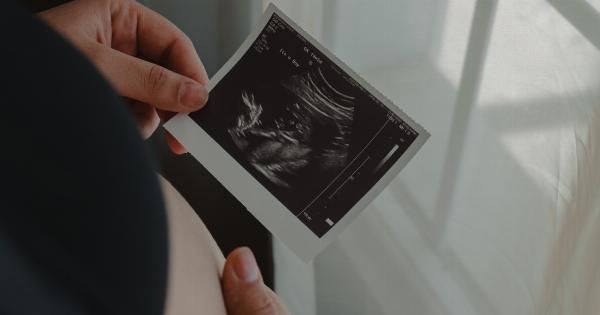Pregnancy is a beautiful and miraculous journey, but it can also be accompanied by various complications. While some complications may only affect the mother, others have the potential to impact the development and well-being of the fetus.
It is crucial for expecting parents to be aware of these complications and their potential consequences to ensure a healthy pregnancy and a healthy baby. In this article, we will explore ten pregnancy complications that may affect the fetus.
1. Gestational Diabetes
Gestational diabetes is a form of diabetes that affects pregnant women, usually occurring during the second or third trimester.
When a woman has high blood sugar levels during pregnancy, it can increase the baby’s risk of macrosomia (a condition where the baby is significantly larger than average), birth injuries, and difficulties with breathing. To manage gestational diabetes, doctors may recommend blood sugar monitoring, dietary changes, or insulin therapy.
2. Preeclampsia
Preeclampsia is a pregnancy-induced condition characterized by high blood pressure and damage to organs such as the liver and kidneys.
If left untreated, preeclampsia can restrict blood flow to the placenta, affecting the baby’s growth and development. In severe cases, it can lead to premature birth, low birth weight, and other complications. Regular prenatal care, including blood pressure monitoring and urine tests, is essential to detect and manage preeclampsia.
3. Placenta Previa
Placenta previa is a condition where the placenta partially or fully covers the cervix, potentially blocking the baby’s pathway for delivery. This condition can lead to vaginal bleeding, which can be dangerous for both the mother and the baby.
Depending on the severity and stage of pregnancy, doctors may recommend bed rest, cesarean delivery, or close monitoring to prevent complications.
4. Placental Abruption
Placental abruption occurs when the placenta partially or completely separates from the uterus before delivery. This condition can cause vaginal bleeding, abdominal pain, and severe complications for both the mother and the baby.
Placental abruption can lead to oxygen and nutrient deprivation for the fetus, potentially causing growth restriction, preterm birth, or stillbirth. Immediate medical attention is necessary in cases of placental abruption.
5. Intrauterine Growth Restriction (IUGR)
Intrauterine growth restriction (IUGR) refers to a condition where the baby does not grow at the expected rate inside the womb.
This can occur due to various factors such as maternal high blood pressure, smoking, drug or alcohol abuse, or placental problems. IUGR can negatively affect the baby’s overall development, leading to low birth weight, organ problems, and an increased risk of chronic diseases later in life.
6. Preterm Labor
Preterm labor, commonly known as premature birth, refers to the birth of a baby before the 37th week of pregnancy. Premature babies may experience breathing difficulties, feeding challenges, and an increased susceptibility to infections.
They may also face long-term complications related to their organ systems, neurodevelopment, and growth. Specialized medical care is crucial for preterm babies to support their growth and development outside the womb.
7. Multiple Gestation
Multiple gestation occurs when a woman carries more than one baby in her womb, such as twins, triplets, or higher-order multiples. Multiple pregnancies pose a higher risk for both the mother and the babies.
Complications associated with multiple gestation include premature birth, low birth weight, preeclampsia, gestational diabetes, and the need for specialized medical interventions during and after delivery.
8. Infections in Pregnancy
Some infections during pregnancy can have detrimental effects on the fetus’s health and development.
Examples include rubella (German measles), cytomegalovirus (CMV), toxoplasmosis, syphilis, and certain viral infections (such as Zika and COVID-19). These infections can lead to birth defects, developmental delays, or other health issues in the baby.
It is important for pregnant women to practice good hygiene, take necessary precautions, and seek appropriate medical care to prevent and manage infections.
9. Rh Incompatibility
Rh incompatibility occurs when a mother’s blood type is Rh-negative, and the baby’s blood type is Rh-positive.
If the mother’s blood becomes sensitized to the Rh factor, her antibodies may cross the placenta and attack the baby’s red blood cells. This can lead to a condition called hemolytic disease of the newborn, causing anemia, jaundice, organ damage, or even stillbirth. Rh incompatibility can be managed with Rh immune globulin injections during pregnancy and after delivery.
10. Maternal Health Conditions
Maternal health conditions such as high blood pressure, thyroid disorders, autoimmune diseases, and epilepsy can potentially affect the fetus.
Uncontrolled maternal health conditions can increase the risk of growth problems, birth defects, preterm labor, and other complications. Close monitoring, proper medication management, and regular prenatal care are essential to minimize the impact of these conditions on the baby’s health.






























